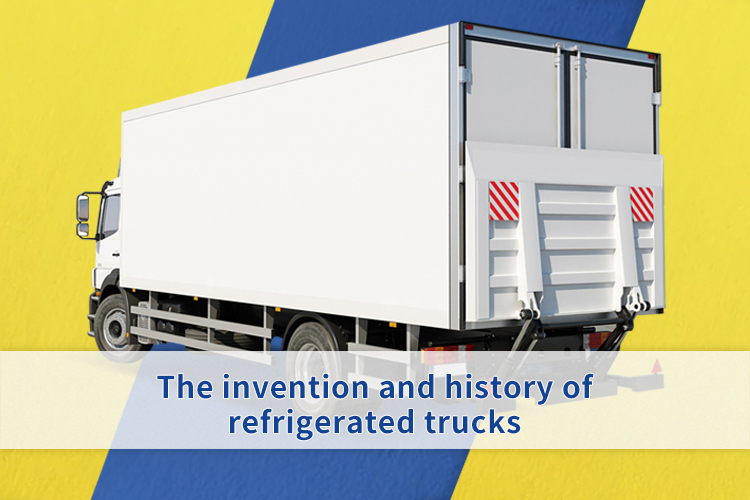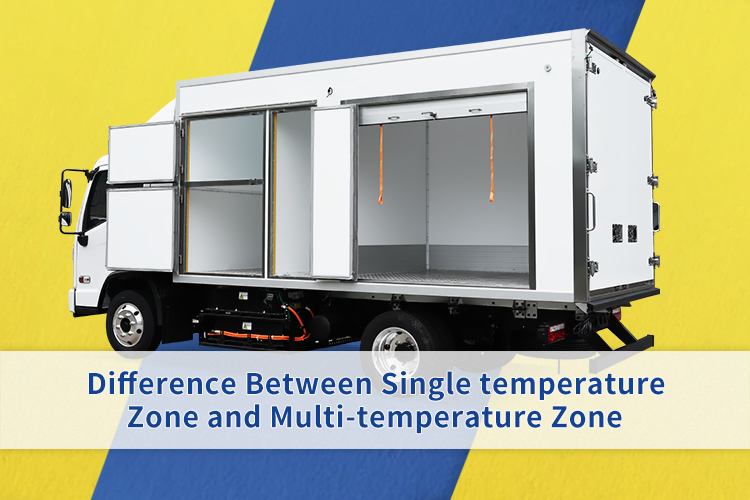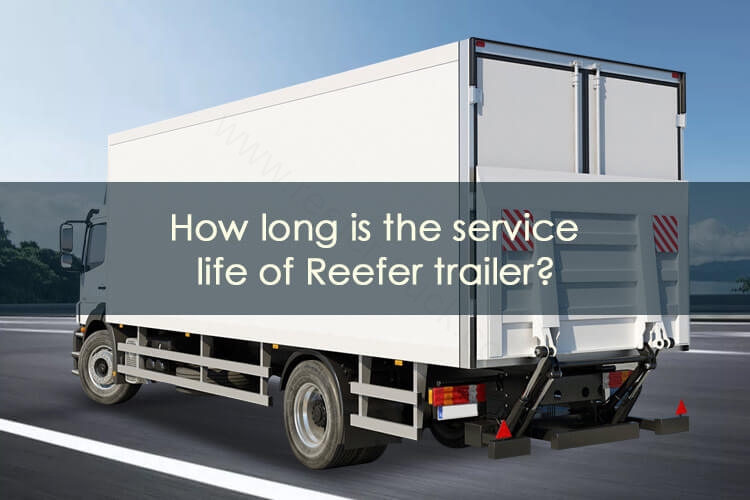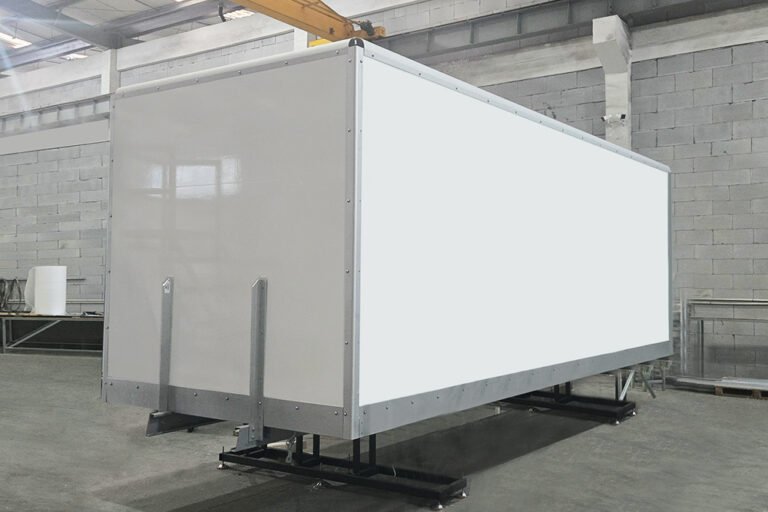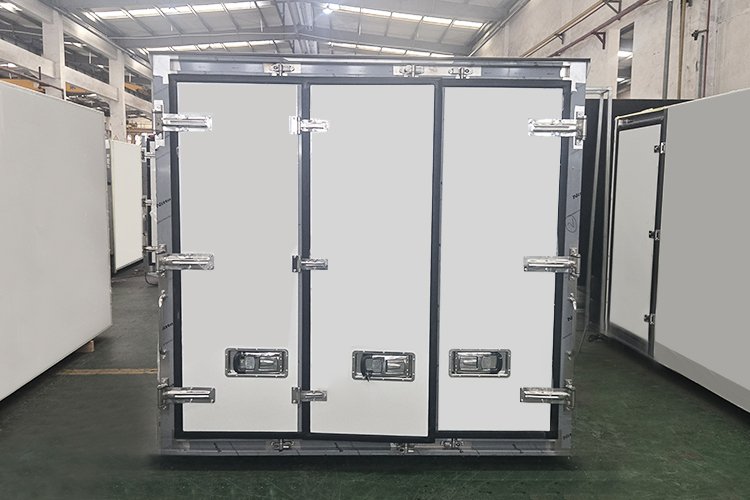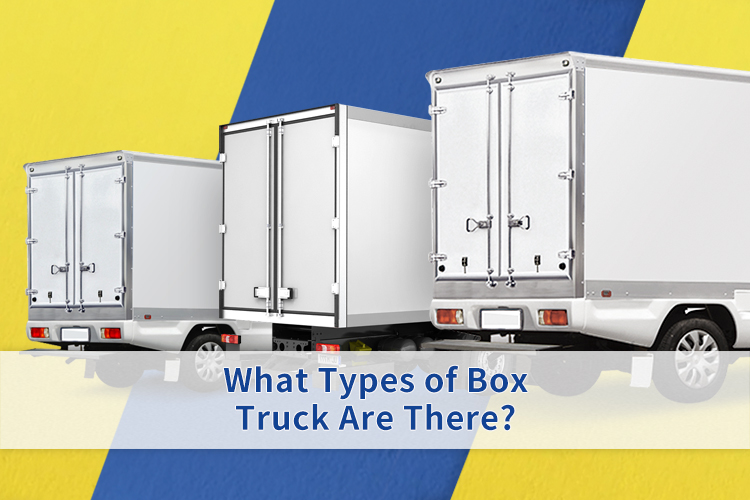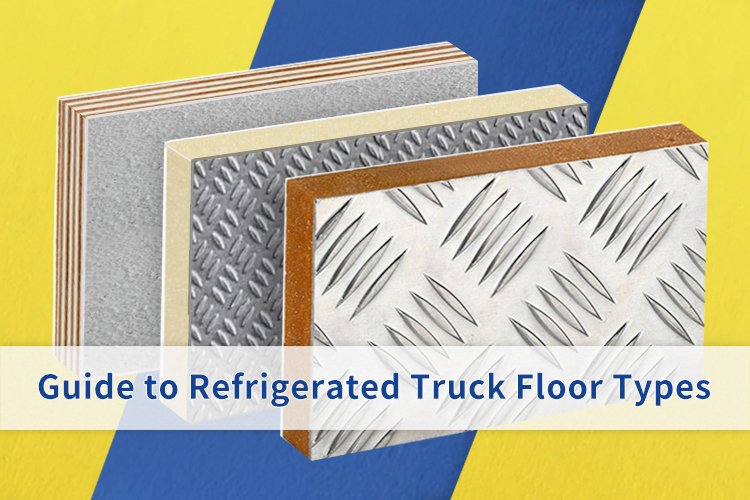The invention and history of refrigerated trucks
Refrigerated vehicles appeared in the mid-to-late 1800s. In 1867, American inventor William Cullen created the first one. Refrigerated trucks with refrigeration units appeared in the early 20th century. The first appearance of refrigerated trucks revolutionized traditional logistics. Refrigerated trucks are crucial in modern logistics and transportation. They transformed how we transport perishable goods. Now, seafood can be sold far inland, not just on the coast. Fresh vegetables, meat, dairy, and beer can also travel long distances. This change has improved the quality of human life.
Without refrigerated trucks, effective refrigeration was hard to find. This led to more food spoilage and waste. The introduction of refrigerated trucks has changed this situation. They are now key to the modern supply chain.
This article is by Dr. Jack Yu of Composite Box. It explores the invention of the reefer truck. It also traces its origins and evolution. You can see how the technology has advanced. The impact of reefer trucks on the globalization of the 21st-century economy is significant.
The Early Stages of Refrigerated Transportation
Refrigerated transportation has evolved over time. People have tried many methods to keep things cold. They moved from ice refrigeration to mechanical refrigeration in the 19th century by exploring and experimenting. This experience is the historical background of the invention of refrigerated trucks.
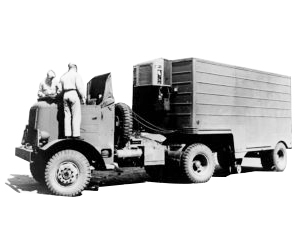
Early ice refrigeration methods
Ice refrigeration methods and insulated containers for transport started in the early 1800s. For rail transport, ice filled the cars to keep them cold. However, this needed a lot of storage space and manpower. Ice melts easily, causing temperature control issues. Also, regional conditions affect the ice, making it hard to maintain low temperatures over long distances. This method was not efficient and had high costs. Very high cost.
The method of ice refrigeration does not solve the problem of refrigerated transportation, so there is still a need for a better way to achieve.
Transition to Mechanical Refrigeration
By the end of the 1800s, mechanical refrigeration started to take over ice-based systems. This was a significant leap in transportation technology. Earlier ice methods were unreliable, which drove scientists and engineers to find better refrigeration options. Mechanical refrigeration works by compressing and circulating refrigerant. This produces low temperatures without needing ice. An analysis by RXO and CSC Trucks shows that this technology enabled mobile refrigeration. It set the stage for the refrigerated truck in the 20th century. This invention marked a new era in cold chain logistics.
The Invention of the Reefer Truck
In the early 1900s, trucks and revolutionary refrigeration units were both created. This innovation met the need to transport perishable goods over long distances. Frederick McKinley Jones played a key role in this development. His work laid the foundation for modern refrigerated transportation.
The First Refrigerated Truck
Frederick McKinley Jones invented the first refrigerated truck. He created a refrigeration unit that worked with a portable truck, marking a turning point in refrigerated transport. Jones was a mechanical genius and a brilliant inventor. He transformed commercial transportation and opened up true refrigerated transport. This innovation has greatly improved the quality of life for people around the world.
Technical Performance and Details of the First Refrigerated Truck
As a manufacturer of Composite Box refrigerated trucks, we’ve studied historical refrigeration closely. Jones’s design featured a compact refrigeration unit mounted on top of the truck. It was powered by a small gasoline engine. The unit cooled by compressing refrigerant, keeping cargo cold during transit. This self-contained system gave the truck more flexibility than earlier stationary models, ushering in a new era of transportation.
This new refrigeration technology has been used since then, but it is still early in its development. Our Chinese refrigerated truck production started in the 1980s and has now become the world’s largest manufacturer of refrigerated truck boxes.
The Development of Refrigerated Trucks
The invention of the refrigerated truck sparked rapid development and new applications. It greatly impacted society and industries, especially in perishable food and pharmaceuticals. Refrigeration costs dropped, benefiting a larger population and raising living standards.
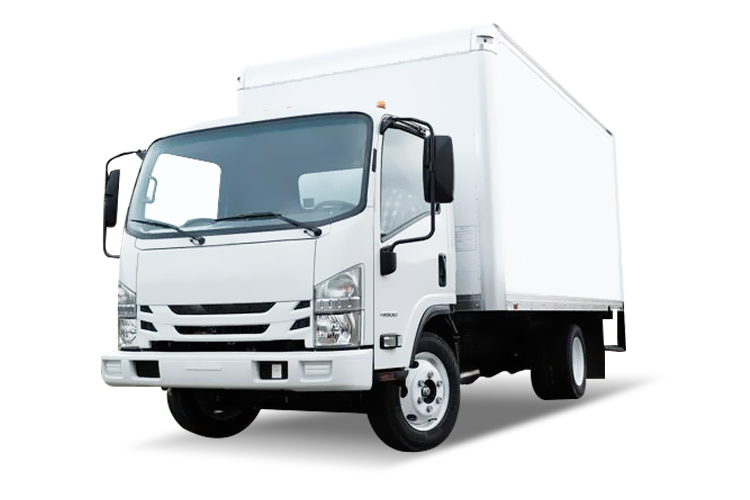
Developments after 1940
After the invention of refrigerated trucks in the early 1900s, their functionality improved. Here are key changes that occurred after the 1940s:
Improvements in insulation: By the 1950s, polyurethane foam was used for insulation. This increased insulation performance by 40%, reducing energy loss. Composite Box manufactures insulation, with FRP PU panels as a key material.
Electric refrigeration units: Electric systems emerged to replace gasoline-powered units. These were more environmentally friendly and improved efficiency by over 30%.
The rise of the refrigerated truck fleet: By 1970, the number of refrigerated trucks in the U.S. surpassed 100,000. Electric refrigeration units improved insulation and efficiency, driving fleet development.
Impact on the industry:
Food transportatio: The global cold chain market is valued at nearly $300 billion in 2023. You can taste the freshest seafood inland.
Medical field: It allows temperature-sensitive medicines and vaccines to be transported in good conditions.
Global trade: the share of refrigerated goods is 20%, boosting international logistics.
The influence of reefer truck on modern times
The reefer truck marks a key moment in history. It boosts the transport of perishable goods and enriches the market economy.
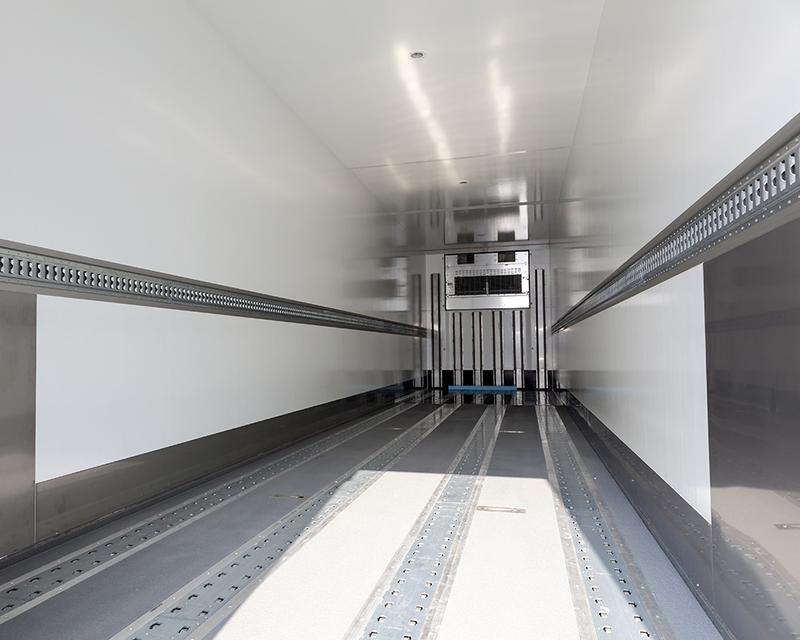
Modern application:
E-commerce: Recently, refrigerated trucks and insulation materials have made cold chain logistics more popular.
Cold chain logistics: Reefer trucks bring at least 300 billion dollars a year to the market. Ensure that cold temperatures can be guaranteed all along the chain.
Technological innovation: It enables refrigerated trucks to operate without gasoline. This development promotes low carbon emissions and protects the environment. And it brings sustainability, efficiency and, above all, still food safety is guaranteed.
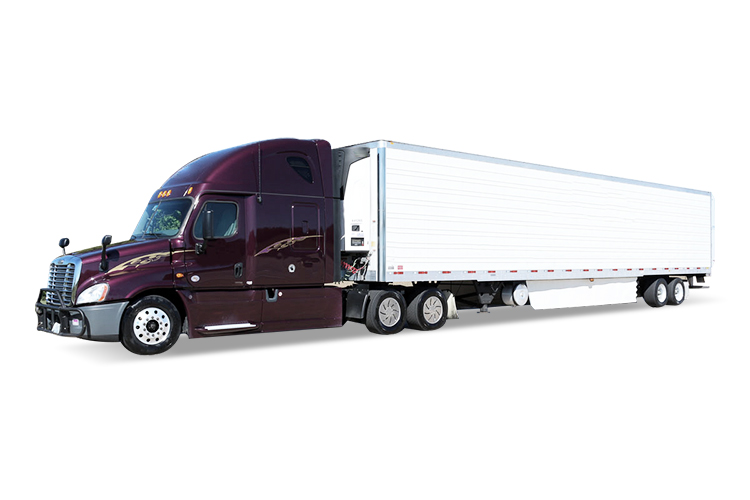
Related Post
Related Product
Author introduction

Hello, customers
My name is Jack Yu and I am the Business Manager of Composite Box. I have been in the business of sandwich panels, refrigerated trucks and RVs for more than 10 years. Please feel free to contact us. I am happy to provide you with the best service and products.
Email: info@composite-box.com | Tel: 86+17280837525

